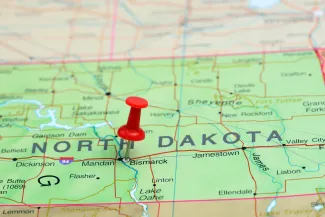
North Dakota community colleges have solid enrollment, faculty is another story
Click play to listen to this article.
(Prairie News Service) Some North Dakota community colleges and technical schools have had success when it comes to student enrollment but they have not been able to avoid challenges seen nationwide in hiring enough faculty.
The National Education Association said across the U.S., the number of faculty at two-year institutions declined 5 percent in the past decade, with two in three community colleges seeing declines averaging 17 percent.
Lisa Karch, executive vice president of academic affairs at the North Dakota State College of Science, said they have had ups and downs with staff retention, noting there were a few unfilled openings to start this academic year. She argued it is vital to have enough instructors to keep specialized class sizes smaller.

"For our labs, it really comes down to a safety issue," Karch pointed out. "Whether it's a welding lab or a diesel lab or HVAC or plumbing."
She stressed they have accelerated efforts to have succession planning with more faculty retirements expected in the near future. The school also launched a new program where existing staff get additional training support on innovation related to their course material, making their professional development demands less of a burden.
Bismarck State College, which offers a mix of two-year and four-year degree options, reports difficulty in competing with the private market.
Dan Leingang, vice president of academic affairs at the school, said certain faculty are being wooed by job opportunities too hard to pass up.
"What we're seeing is a salary differential," Leingang observed. "Especially in highly technical fields, where the industry is paying very strong wages because of the demand."
Public schools have a harder time matching such offers. But Leingang added they are taking advantage of higher enrollment numbers and reinvesting the revenue into faculty salaries and bonuses. Like the State College of Science, they are also leaning on industry leaders within the region to serve as part-time faculty to help fill gaps and ensure students get a comprehensive learning experience.
Support for this reporting was provided by Lumina Foundation.

















